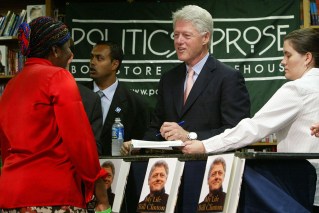Review: The Mandarin Code


The body of a Chinese worker is found floating in Lake Burley Griffin by a group of schoolkids, kicking off a story which links Canberra and its operatives – diplomatic, political and media – with cyberhackers in China and policy hawks in Washington.
Written by Steve Lewis and Chris Uhlmann, two of Australia’s most experienced political reporters, The Mandarin Code uses their experiences in the nation’s capital as the animating force behind the second book in a planned trilogy. The first instalment, The Marmalade Files, was released in 2012.
Anyone familiar with Australian politics will read the opening chapters with a sense of recognition. The city landmarks are seen on national TV most nights, the characters are fictitious but familiar, and the intrigue at the fringes of the story loudly echoes the most dramatic moments of recent political history.
A beleaguered minority government, union outrage at imported labour, a deeply unpopular Prime Minster facing electoral annihilation, attacks by foreign cyberhackers – there’s plenty of recognisable material for the political junky to latch onto.
At a deeper level, The Mandarin Code presents arguably the major geopolitical challenge facing Australia over coming decades – one one hand, the potential windfall of feeding China’s hunger for natural resources, while on the other, the security of the historic US alliance. Can Australia have both?
It’s a big question. While it shadows the broader narrative, don’t imagine the authors spend too long pondering it. This book places action, violence and tense, multi-layered diplomacy above anything so navel-gazey as policy analysis. In fact, if political reality plays any role in this story it’s to provide a raison d’etre for the rollicking, action-film drama which surrounds it. And surround it, it does.
Lewis and Uhlmann use their fictional Prime Minister as a diplomatic firelighter. China’s government-sponsored cyberhackers have outsized power and are not afraid to use it, at one point to remind the PM they could kill thousands of innocent Australian travellers with the click of a mouse. To some, Canberra is a boring administrative centre, strangely marooned between the two cities which conduct the real business of Australia. But with an apparent distaste for dull moments, the authors fill every corridor, office, construction site and non-denominational meditation space with violence, intrigue and sex, or their precursors.
While The Mandarin Code is written by political insiders, and people who follow politics will get a kick from it, this book will grip anyone susceptible to a cracking read.
If you’re thinking about buying it, don’t think senate estimates or even question time. Don’t think scripted press conferences and weasel words. Think House of Cards but with higher stakes. Think West Wing by Matthew Reilly.









